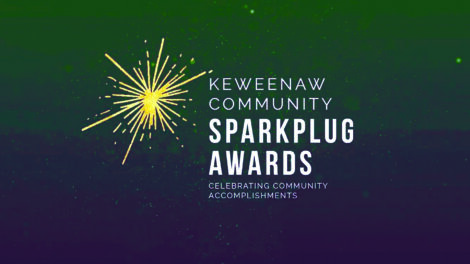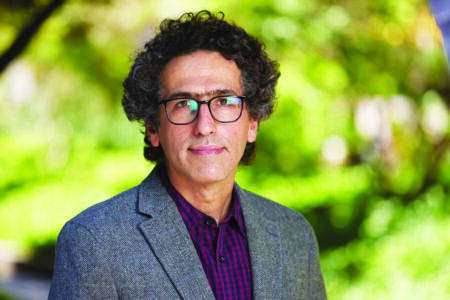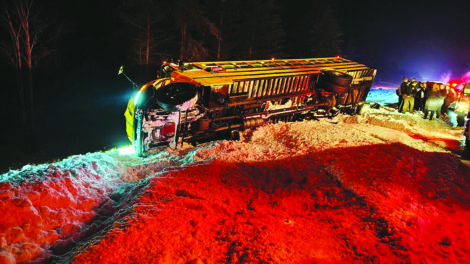Holocaust Survivor Speaks

Ben Garbacz/Daily Mining Gazette Irene Miller holds her book "Into No Man's Land" which recounts her experience surviving the Holocaust. Miller shared her story with the public during a talk at Houghton High School this week.
HOUGHTON — Temple Jacob in Hancock hosted a pair of talks by talk by Holocaust survivor Irene Miller. On Tuesday she spoke to the general public while Wednesday she addressed high school students. Both appearences took place at Houghton High School. Miller was invited to share her experiences of fleeing Poland during WWII and discuss the importance of keeping the story alive, which she has with her book “Into No Man’s Land.” Miller also spoke about what she believes can lead to totalitarian societies and how to prevent them.
Temple Jacob’s President, Barbara Irizarry had the opportunity to sponsor Miller’s visit, and believes it is important provide an opportunity for locals to hear from one of the few living Holocaust survivors and one who continues to speak publicly in the U.S.
“Rural areas tend to have small or nonexistent Jewish populations, so I think that maybe the subject is not always at the forefront, or something that is [not] talked about in public forums,” Irizarry said. “So this is an opportunity to bring her here to bring the Holocaust story, and also the really important subject about what leads up to totalitarian regimes.”
Miller spoke in the high school auditorium sharing her journey that began when she was only a few years old and Poland was invaded at the beginning of World War II. Miller said she and her family fled Warsaw under a Polish guide who smuggled people over the Soviet Union border. The guide left them in a wooded area and pointed them toward an area where they were to take a train. The next day, the family went to the area to find that they had not crossed the border, but were instead left in No Man’s Land with other Jewish escapees.
The family stayed there in the winter cold for several weeks during which time Miller suffered from frostbite. She said she distinctly remembers the image of a man who had slept next to her who had died during his sleep. She also remembers a mother who was cradling a baby who had died. The body of the infant was taken to Soviet soldiers guarding the border and placed at their feet. The crowd that gathered begged the soldiers to let them cross, but the soldier kicked the infant’s body back into the crowd.
Miller said her father was then able to bribe a Soviet official to permit the family except her mother cross. Her mother was eventually reunited with them, but the family was soon put on a train to a labor camp in the Siberian Taiga. Afterwards the family was shipped to Uzbekistan, where they faced starvation and malaria. Miller’s parents sent her and her sister to a Jewish orphanage at this point to give their children a better chance at receiving meals. Miller’s father died during that time of dysentery.
Later in 1950, Miller migrated to Israel and then in her early 20s to the United States. While in the U.S. Miller earned a degree in psychology and master’s in Social Psychology. She then achieved her second Master’s in hospital management and worked as a hospital executive. Later in life, in 2012, she published her book through the University of Michigan to share her memories of the historical events she witnessed.
After Miller recounted her experience, she shared some of the work she had done and explained the importance of recognizing the signs of looming totalitarian systems. She warned of leadership scapegoating specific groups for the ills of a society, controlling the flow of information and the destruction or banning of literature such as the book burnings in Nazi Germany.
Miller answered questions from the audience and then met with people where copies of her book were available for purchse. Several people she spoke with thanked her for keeping that period of history alive. Miller said it is important to bring her story to small communities because they normally do not have the same resources related to the Holocaust, whether it is exhibits, lectures or community events.
“I always am glad to be invited in a community that needs to hear this information, because they don’t have too many other sources from where to get it,” Miller said. “I am a living witness to that, and it’s a very different perception and understanding whether someone gets the information reading from a book or hears it directly from a living witness, because I don’t tell them a story. I bring them with me to relive the experiences that I did, and no book can tell you that.”





